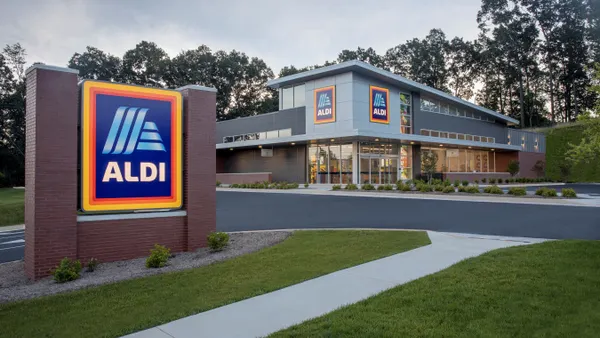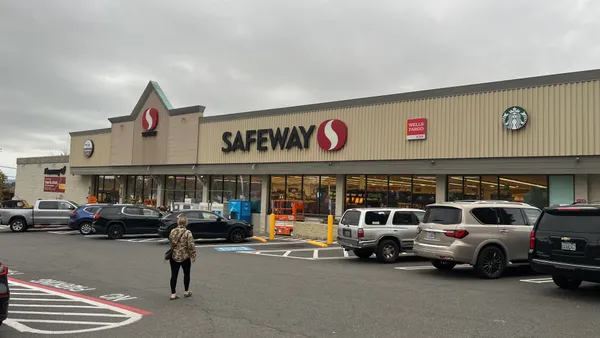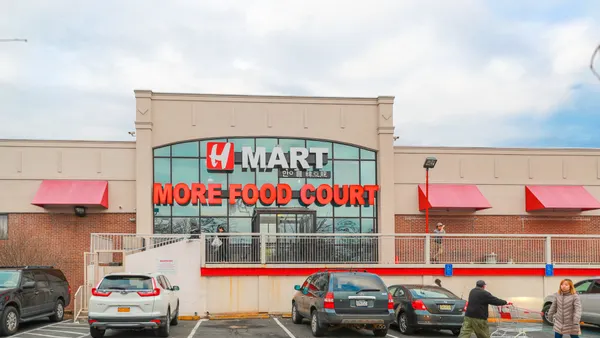Dive Brief:
-
Grocers including H-E-B, Kroger and Albertsons are limiting the amount of meat and poultry customers at some locations may purchase as processors close plants in response to the pandemic, according to company announcements and media reports.
-
H-E-B is restricting shoppers to five packages of chicken, pork, turkey or beef in some parts of Texas, and implementing different restrictions elsewhere. Kroger said last Friday that it would limit purchases of pork and ground beef at unspecified stores, CNN reported, while Albertsons has imposed a limit of two packages each of beef, chicken and pork in Southern California, according to Newsweek.
-
The restrictions follow an announcement by the Trump administration last week that it was taking steps to protect the nation’s meat supply to “ensure a continued supply of protein for Americans.” The White House said President Trump was invoking the Defense Production Act to ensure that meat and poultry processors continue operations “to the maximum extent possible” despite the coronavirus outbreak. The government said the processors would continue to take steps to protect workers but did not specify what it expected the companies to do.
Dive Insight:
The decision by grocers to limit meat and poultry purchases comes as meat processors emerge as a key battleground in the food industry’s fight with the novel coronavirus. Meat plants operated by producers such as Tyson Foods and Smithfield Foods, which have been dealing with a growing number of coronavirus cases among their workers, have closed plants in response to the outbreak, crimping capacity and raising concerns that meat supplies available to consumers will be constrained in the coming weeks.
The virus has caused 22 meatpacking plants to close for at least some period of time during the past two months, reducing pork slaughter capacity by a quarter and beef slaughter operations by 10%, the United Food and Commercial Workers Union (UFCW) said April 28. The union added that it has confirmed the death of 20 workers at meatpacking and food processing plants, with at least 5,000 meatpacking workers “directly impacted” by COVID-19.
In a reflection of the challenge the grocery industry faces in balancing its ability to meet consumer demand with efforts to ensure shelves remain stocked, H-E-B imposed limits on meat and poultry purchases less than two weeks after announcing that it was pulling back on purchase restrictions on a range of goods as of April 27. At the time, the company said it had acted because the supply chain was improving and product availability had increased.
H-E-B sources most meat from Texas-based meat processors that have not been heavily impacted by the coronavirus, but acted to “protect the supply chain and ensure all customers have access to the products they need and leave some for their neighbors," a spokesperson for the grocer told mySanAntonio.com.
The day after the announcement from the Trump administration that it was acting to keep the supply chain running, the UFCW sent a letter to the governors of every state and the National Governors Association asking them to enforce “strong, enforceable safety standards” to protect workers in meat-processing and poultry plants. The union said companies that operate the plants should test all people working at their facilities for COVID-19 in addition to other measures to keep workers from getting sick and mandating sick pay if they test positive for the virus or are in close contact with someone who does.











